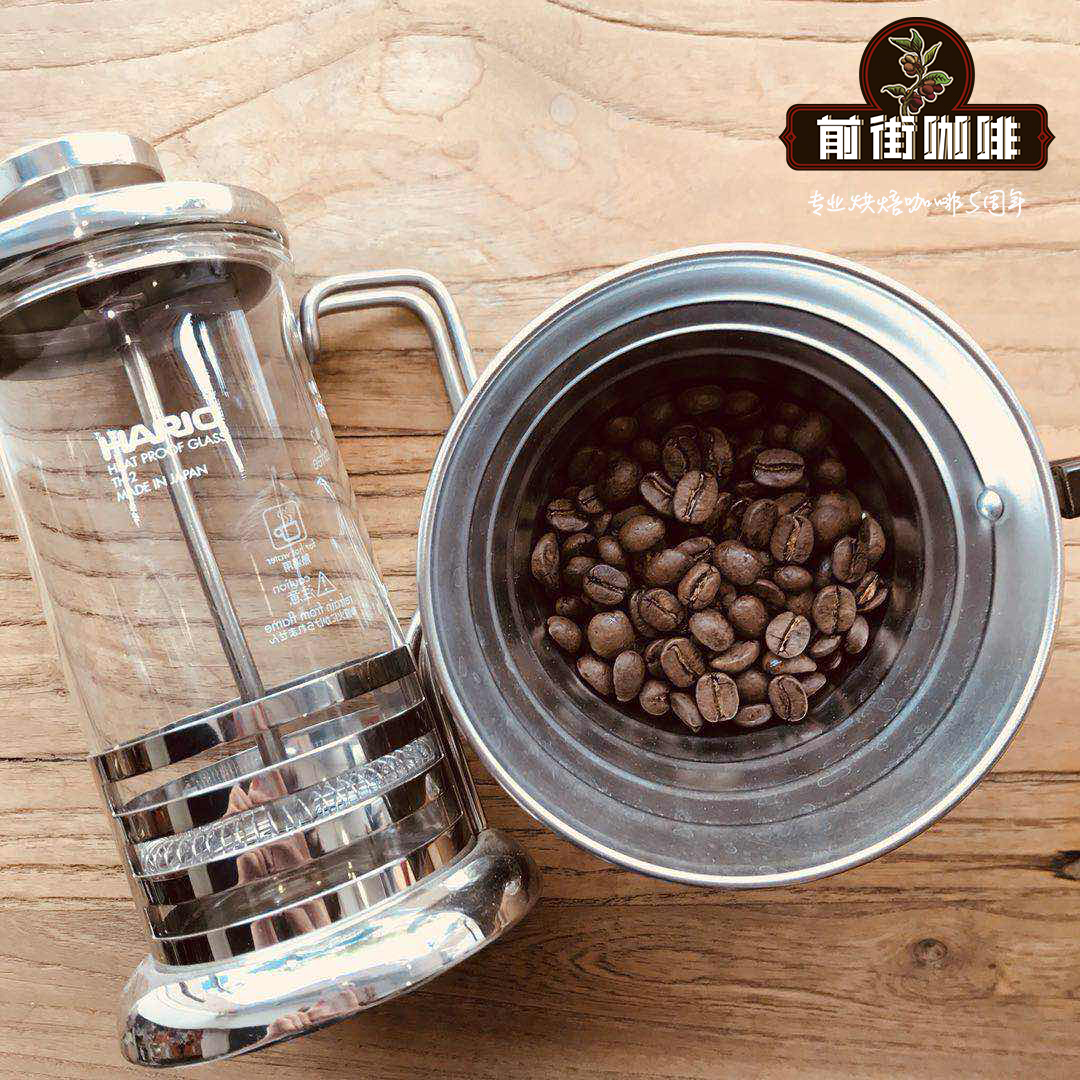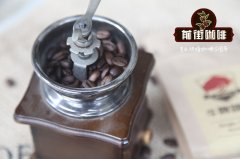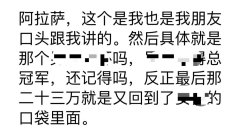What is boutique coffee? what are its characteristics?
Now there is an advertisement for coffee that says, "the first generation drinks instant coffee, the second generation drinks espresso, and now let's enter the third generation to drink hand-made boutique coffee." As I mentioned earlier, it is impossible for a good baker to beautify mediocre coffee beans into high-grade coffee beans. Good beans can only be planted attentively, from the variety of trees, the way of cutting, to the harvest of fully ripe fruit. These are good beans that can only be obtained by coffee farmers and good coffee farms and producing areas.
Gradually, in the middle of the 19th century, coffee farmers began to cut coffee more attentively. Although at that time, it was meant to make the quality of coffee better by germplasm, I think it was true that we had to rely on good quality in exchange for a better price. After that, we broke through layers of traders and were able to purchase coffee beans directly from the origin or manor, mainly to resist the large number of purchases and collection by European traders. The coffee beans with such emphasis on quality are made by Erna Knustsen, the godmother of boutique coffee, who innovatively used the word "Specialty Coffee" in the "Tea & Coffee Trade Journal" monthly magazine in 1974 to show that only in the most favorable altitude, soil and climate can we cultivate high-quality coffee with unique flavor. At the same time, it is also a comparison with large quantities of commercial low-cost coffee. Later, she and five others founded the American Fine Coffee Association in 1982, and the word "boutique coffee" was not known around the world. It was not until 2000 that she gradually moved from the niche market to the mass market.
Coffee growth is mainly distributed in the tropics with the equator as the center and latitudes between 25 degrees south and north. Coffee is grown in more than 70 countries in the world, and "boutique coffee" pays attention to Terroir (regional flavor), climate or altitude of producing areas or estates, whether coffee trees are sunny or shady, valley climate or dry, rainy or humid, temperature difference between day and night, etc., these complex weather, soil and water combinations, cut out coffee with different flavor, so without unique "regional flavor", it is not fine coffee. And reduced to fragrant, monotonous, with bitter, must add sugar in order to import the low-cost coffee. Then careful washing and sun processing, hand-selected flawless raw beans, and then a good baker to interpret its flavor, and finally by organizations like SCAA to carry out a "Cupping" score, basically these judges score more than 80, can be called Specialty Coffee "boutique coffee", better boutique coffee, and even cup test scores of more than 95 points. Boutique Coffee-- characteristics of Fine Coffee beans
1. Boutique coffee beans must be high-quality beans with flawless beans. It should have an outstanding flavor, not "no bad taste", but "taste particularly good". two。 Boutique coffee beans must be excellent varieties, such as the original bourbon species, mocha species and Tippica species. The coffee beans produced by these trees have unique aroma and flavor, which is far from that of other tree species, but the relative yield is low. In recent years, in order to pursue the ability of disease and insect resistance and increase the yield, there are many improved tree species, such as Kenya to promote a large number of high-yield rurial11 species, but the taste and quality are greatly reduced. Of course, you can't call it "boutique coffee". 3. The growth environment of boutique coffee beans also has higher requirements. Generally grow at an altitude of 1500 meters or even more than 2000 meters above sea level, with appropriate precipitation, sunshine, temperature and soil conditions. Some world-famous coffee beans also have a special geographical environment, such as the alpine clouds in the Blue Mountains, the free shade provided by Kona's "Flying Cloud" in the afternoon, and the volcanic ash soil in Antigua, which provide conditions for the growth of boutique coffee. 4. The best way to harvest high-quality coffee beans is to harvest them manually. That is, only mature coffee fruits are picked to prevent coffee fruits with inconsistent maturity from being picked at the same time. Because those unripe and overripe fruits will affect the balance and stability of coffee taste, boutique coffee needs to be picked frequently and carefully during harvest. 5. High-quality coffee beans are refined by water treatment. The coffee beans with less impurities can be obtained by the water washing method, but if the water quality and time are not properly controlled during the fermentation process, the coffee beans will easily be infected with the sour taste of excessive fermentation. and dry beans also need to pay attention to timely re-inspection to prevent coffee beans from being contaminated by wet ground and sundries. Processed beans should be dried in time, and the drying should also have a certain degree. Generally, the moisture content of processed beans is 11-13%. Insufficient drying can easily make beans moldy, and excessive drying can easily affect the flavor of beans. 6. Boutique coffee has a strict grading system. In general, raw beans are preserved as "parchment coffee beans" in the form of endocarp after processing, and the endocarp is removed before export. Go through a strict grading process to ensure the uniformity of quality. And its preservation and transportation in the process of protection is very important, such as temperature and humidity control, ventilation control, avoid odor adsorption and so on, if these do not do well, then no matter how high-grade beans will no longer become fine.
Fine Coffee-drinking Coffee
1. Fine coffee is made from boutique coffee beans. If the beans that make coffee are not boutique coffee beans, the coffee liquid produced cannot be called fine coffee.
"American Fine Coffee Association (SCAA) introduction to American Fine Coffee Association w.kaf.name"
two。 Boutique coffee is fresh coffee. Whether it's food or drink, of course, the fresh the better, and so is boutique coffee. High-quality coffee should keep the coffee beans fresh before making, including the preservation of baked beans, and grind the coffee beans into powder before making, which is also to retain its original and best flavor. The way of making hand-brewed coffee is such a way to make high-quality coffee, and it is also one of the coffee-making methods that can best retain the original flavor of coffee. 3. Boutique coffee is good coffee and is harmless to health. Different from coffee made with low-quality coffee beans, high-quality coffee uses high-quality coffee beans and freshly made coffee, which is harmless to health, and drinking in moderation is beneficial to the body and mind. 4. Boutique coffee has a rich and beautiful taste. Even if the coffee made of boutique coffee beans is not all fine coffee, it depends on whether it gives full play to the characteristics of coffee beans, whether it has a good taste, if not, it can not be called boutique coffee.
Development trend of boutique coffee
As long as it is delicious coffee, coffee consumers are willing to pay a high price; as long as delicious coffee is provided, consumers will not abandon coffee and the market will grow. "High-quality coffee represented by boutique coffee is a big business." Coffee producers and consumers have discovered this simple fact. In recent years, coffee producing countries no longer blindly pursue high output while neglecting quality. Many countries have begun to introduce a new coffee evaluation system in order to arouse the enthusiasm of producers and promote the production of fine coffee. For example, Brazil began to implement the Cup of excellence coffee rating system in 1999 in order to better subdivide boutique coffee. And boutique coffee has become one of the fastest growing markets in the catering service industry, reaching 12.5 billion US dollars in the United States alone in 2007. All these can see the potential of the boutique coffee market, and the boutique coffee market will certainly grow stronger and stronger in the future.
SCAA, full name-- Specialty Coffee Association of America, Chinese translation as "American Special Coffee Association" and a small number of people call it "American Fine Coffee Association". SCAA is the largest coffee trade association in the world and a trade organization focusing on high-quality coffee. Founded in 1982, SCAA has more than 3, 000 member companies in more than 40 countries around the world, covering all areas of the coffee industry, including coffee growers, coffee roasters, coffee equipment manufacturers, and all kinds of coffee traders. The industry function SCAA is committed to providing a common platform for pursuing the excellent quality of coffee "from seed to cup" and the sustainable development of high-quality coffee, establishing coffee quality standards and standardizing the certification standards for the skills of coffee professionals. Its main functions include: setting and maintaining coffee quality standards in the coffee industry; conducting research on coffee, coffee equipment and improving coffee craftsmanship; at the same time, the association also provides coffee education, training, resources and commercial services for its members; the barista evaluation standard established by SCAA and the barista certificate issued is one of the most authoritative barista certifications in the world. The Association holds various coffee fairs, coffee seminars and barista championships every year. The annual meeting of the Association, held in different cities every spring, is the largest gathering of coffee professionals in the world.
"American Fine Coffee Association (SCAA) introduction to American Fine Coffee Association w.kaf.name"
As the world's largest and authoritative coffee trade association, SCAA awards awards every year to companies and individuals who have made outstanding contributions to the coffee industry, including Lifetime Achievement Award, Special contribution Award, Outstanding author / publisher Award, Special Certification Award (individual), and Sustainable Development contribution Award. Golden Cup Award (Cafe, retailer) / Golden Cup Award, Morse Drakman sales Service Award / Mose Drachman Sales and Service Award, Baker Association Coffee of the year Award / Roasters Guild Coffee of the Year, Best roasted Coffee Award decided by the Baker Association Best roasted Coffee Competition / Roasters Guild Roasters Choice Tasting Competition. The last two prizes were decided in the form of a competition. The authoritative certification SCAA consists of two chapters: the baristas Association (Barista Guild of America) and the Baker Association (Roasters Guild), both of which are composed of professional coffee practitioners. Members improve the quality of coffee in the industry through information exchange, skills training and cooperation. At the same time, the Coffee quality Association (CQI) is the charitable trust of SCAA and the largest provider of coffee training and technical assistance in the coffee industry. The authentication of SCAA is highly authoritative. There are only three coffee quality evaluation judges (Certified SCAA Cupping Judges) certified by SCAA authority, all from the United States; at present, there are 521 coffee quality rating baristas (Licensed Q Graders) licensed by SCAA from 18 countries in the world, of which Colombia has the most, 161and Japan has the largest number of countries in Asia, with 60, while China has not yet. At the same time, SCAA also provides a variety of certifications for coffee practitioners and coffee companies around the world, including: the American baristas Association Certification course (Barista Guild of America Certification) is a professional barista training course, ranging from low to high grades Level 1, Level level 2 and Level 3. Each level has courses and exams, which you can take after completing the course, and if you think you are good enough, you can sign up for the exam without taking the course, and you can get a certificate after passing the exam. Coffee Machine Certification (Coffee Brewer Certification) Coffee machine manufacturers can contact SCAA to apply for certification of their coffee machines, and all coffee machines applying for certification will be sent to SCAA's office center in long Beach, California for testing. The coffee machine that has passed the test can be marked with the certified product logo. Coffee Evaluation Committee Laboratory Certification (Cupping Judges Lab Certification) Laboratories that have passed this certification can be used to teach SCAA Coffee Evaluation Committee certification courses
Boutique coffee (specialty coffee) is also called "specialty coffee" or "select coffee". It refers to coffee made from a small number of raw beans with excellent taste grown in an ideal geographical environment. Depending on the special soil and climatic conditions in which they grow, they have outstanding flavor.
This book mainly introduces two kinds of top coffee in the world, GOURMET and Lanshan No. 1, and other boutique coffees from other places. The origin and present situation of the top boutique coffee, and the judgment standard of the fine coffee. The characteristics of top coffee: boutique coffee beans, boutique production process.

Important Notice :
前街咖啡 FrontStreet Coffee has moved to new addredd:
FrontStreet Coffee Address: 315,Donghua East Road,GuangZhou
Tel:020 38364473
- Prev

What is decaf coffee? what are its characteristics?
As early as the Stone Age, humans began to use caffeine. Early people found that chewing the seeds, bark or leaves of certain plants can relieve fatigue and refresh. It was not until many years later that people found that the use of hot water in these plants could increase the effectiveness of caffeine. Many cultures have myths about the discovery of these plants by people in ancient times. There are trace amounts of decaf.
- Next

There is such a rat shit in the coffee circle! Are you talking about boutique coffee life?
Usually I seldom watch Jin Yong. Even if I do, most of the plots come from TV dramas. Yesterday, I happened to see a chapter that was very interesting. I organized a long language story to share it with you: on the top of the light, Zhang Wuji said to Zong Wei of the Kongtong faction: seven wounded boxing is of course powerful, but each time you practice it to a deeper level, your internal organs will be hurt by one more layer.
Related
- What is the difference between Indonesian Sumatra Mantinin coffee and gold Mantinin? How to distinguish between real and fake golden Mantelin coffee?
- What does bypass mean in coffee? Why can hand-brewed coffee and water make it better?
- Unexpected! Ruixing Telunsu lattes use a smoothie machine to foam milk?!
- % Arabia's first store in Henan opens into the village?! Netizen: Thought it was P's
- Does an authentic standard mocha coffee recipe use chocolate sauce or powder? Mocha Latte/Dirty Coffee/Salty Mocha Coffee Recipe Share!
- What is the difference between Vietnam egg coffee and Norway egg coffee? Hand-brewed single product coffee filter paper filter cloth filter flat solution!
- What is the difference between sun-cured and honey-treated coffee? What are the differences in the flavor characteristics of sun-honey coffee?
- How to make Italian latte! How much milk does a standard latte use/what should the ratio of coffee to milk be?
- How to make butter American/butter latte/butter Dirty coffee? Is hand-brewed coffee good with butter?
- Is Dirty the cold version of Australian White? What is the difference between dirty coffee/decent coffee and Australian white espresso?

